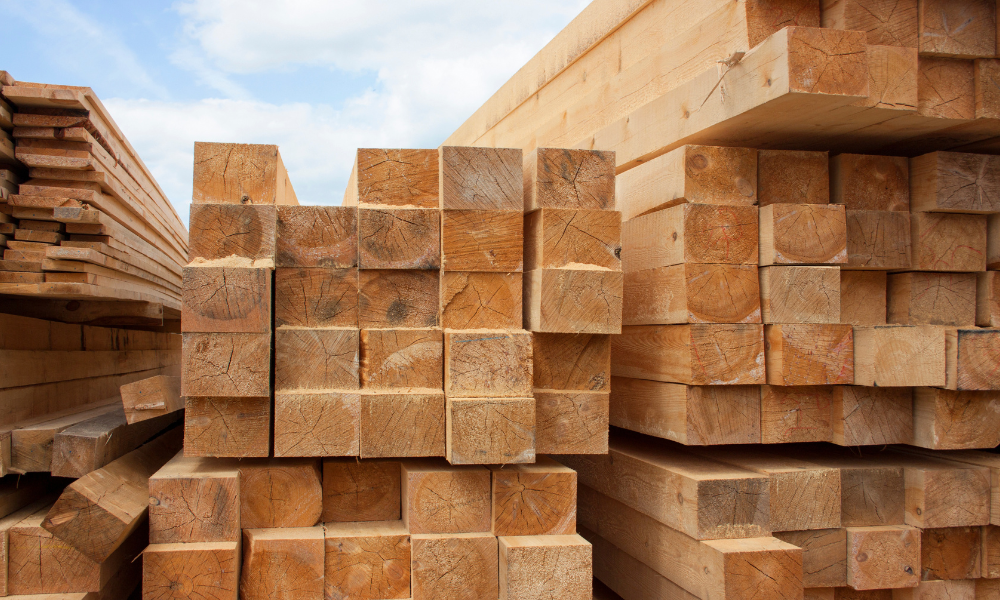Calling the forest sector a pillar of the Canadian economy, Prime Minister Mark Carney has announced new measures seeking to help the country’s softwood lumber industry be competitive and unlock its full potential.
“As we shift from reliance to resilience, Canada’s new government will ensure the industry can transform to seize new opportunities in Canadian and international markets,” Carney said in a news release. “In the face of a changing global landscape, we are focused on what we can control – building Canada strong with Canadian expertise, using Canadian lumber.”
According to the prime minister’s news release, the federal government will:
- Provide up to $700 million in loan guarantees to address the immediate pressures in the softwood lumber sector and ensure that companies can access the financing and credit support to maintain and restructure their operations
- Invest $500 million to supercharge product and market diversification to improve the industry’s long-term competitiveness, increase domestic processing and value-added production, and support Indigenous-led forestry business development and diversification
- Build Canadian by prioritizing Canadian materials in construction and adjusting federal procurement processes to require companies contracting with Canada’s government to source Canadian lumber
- Launch an initiative to diversify international markets for Canadian wood products and reinvigorate federal programming to expand offshore markets for Canada’s sustainably sourced forest products
- Provide $50 million for upskilling, reskilling, and providing income supports for over 6,000 impacted softwood lumber workers through labour market development agreements, with the investment helping equip workers with the tools and training to compete, adapt to new technologies, and excel within changing industries
“By strengthening what we have here at home and standing up for Canada, we’re making sure our country stays strong, competitive, and ready to lead,” said Patty Hajdu, Canada’s minister of jobs and families and minister responsible for the federal economic development agency for Northern Ontario, in the news release.
On forest sector
The federal government’s news release shared that the forest sector supports almost 200,000 workers, including over 11,000 Indigenous peoples, and adds over $20 billion to the gross domestic product (GDP).
“Canada’s forestry sector is a cornerstone of our economy,” said François-Philippe Champagne, Canada’s minister of finance and national revenue, in the news release. “It supports nearly 200,000 good jobs in both urban and rural communities and accounts for billions in contribution to Canada’s GDP and exports every year.”
In 2024, Canada exported 66 percent of its total softwood lumber production, with nearly 90 percent of that exported to the US.
Last July 25, the US Department of Commerce doubled duties on softwood lumber products from Canada, with further raises expected this month.
In its news release, Canada said it seeks to reach net zero by 2050 using new and innovative forest products, including engineered timber, biofuels, and forest product-based biodegradable packaging materials.
Canada added that it aims to double the pace of homebuilding to nearly 500,000 new homes per year over the next decade, which will in turn double the use of Canadian softwood lumber in residential construction and the demand for structural panels.
Canada emphasized that Build Canada Homes will prioritize the use of lumber and other Canadian-made materials to help hasten housing construction and support Canadian workers and industries.
“Protecting and modernizing our resource industries in the face of tariffs and global uncertainty is critical to safeguarding Canadian jobs and communities and ensuring a prosperous and strong future,” said Tim Hodgson, Canada’s minister of energy and natural resources, in the news release.
“By bolstering this key industry and ensuring resilient supply chains, we stand with the industry, its workers, and communities to keep Canada a trusted global trade partner,” said Mélanie Joly, Canada’s minister of industry and minister responsible for Canada economic development for Quebec regions, in the news release.




